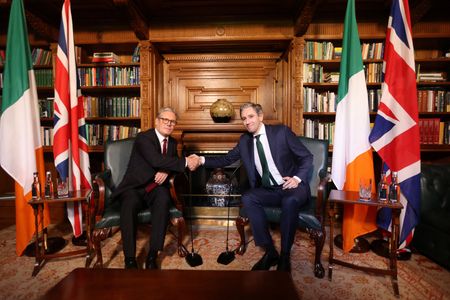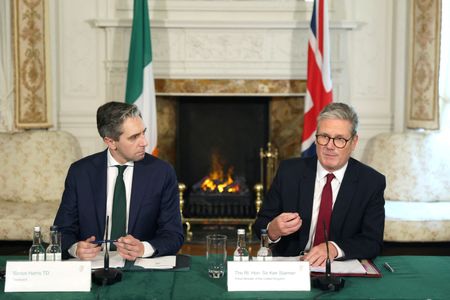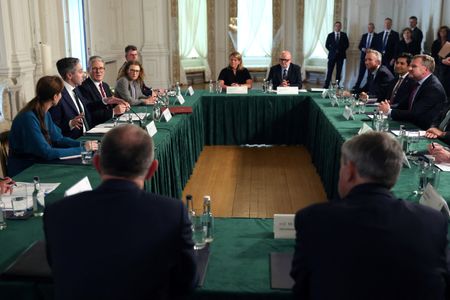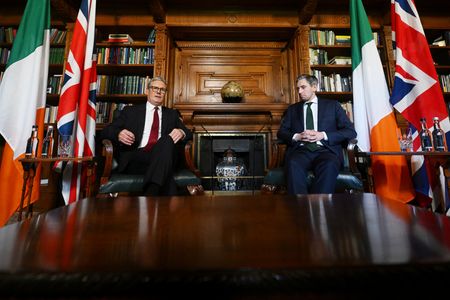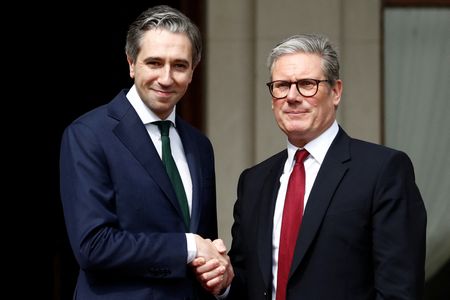DUBLIN (Reuters) -Britain and Ireland said on Saturday they were moving “from friction back to friendship” as British Prime Minister Keir Starmer visited Dublin, part of his efforts to improve ties with the Republic of Ireland and the broader European Union.
Starmer, the first British prime minister to visit Ireland for five years, had talks with Irish prime minister Simon Harris, less than two months after hosting Harris at his Chequers country residence after his Labour Party won Britain’s election.
“It is the moment for reset. It’s when we put meaning behind those words,” Starmer told Harris at the Farmleigh Estate, a former residence of the Guinness family on the outskirts of Dublin.
Starmer has said he wants better cooperation with EU states, and hopes to improve diplomatic and trade relations without revisiting the fundamental basis of Britain’s departure from the EU.
Britain’s decision to leave the EU after its 2016 Brexit referendum put particular strain on Anglo-Irish relations, as trading rules governing Northern Ireland, which is part of the United Kingdom and has a land border with EU member Ireland, became the main sticking point for a deal.
“This moment represents a fundamental shift in our bilateral relationship. With the Brexit debates behind us, we’re moving from friction back to friendship,” Harris and Starmer said in a joint article for The Irish Times.
Harris opened the meeting with a call to “flesh out what a reset actually looks like, what it looks like in a practical sense.”
Starmer and Harris were due to meet business representatives including from Primark, Dawn Meats and dairy firm Ornua before watching a soccer match between the Republic of Ireland and England.
A match in Dublin between the two countries in 1995 – played three years before the Good Friday Agreement which largely ended three decades of violence in Northern Ireland – was abandoned because of a riot. However, a 2015 fixture between the teams passed off without significant incident.
(Reporting by Conor Humphries in Dublin, Additional reporting Alistair Smout in London; Editing by Hugh Lawson and Timothy Heritage)

